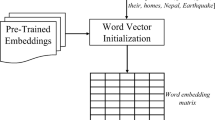Abstract
Online social media has become of great importance in the recent past. It has proven to be a medium for connectivity as well as effortless publicity. Given the vast scope of activities that can be performed with the help of social media, it can also be misused. An anomaly has no concrete definition but the best description of an anomaly would be to identify it as the one that exhibits abnormal behavior. In this paper two events have been taken into consideration, namely black lives matter and demonetization, that took great popularity over social media platforms in recent years and received mixed emotions and behavioural patterns from the public. The response to these events have been observed on twitter and an anomaly in the trend has been predicted in the course of a selected time frame using a proposed system model to accomplish the process efficiently. The deep learning model uses a Gated Recurrent Unit classifier along with a domain ontology to enhance the process of prediction. A comparative graph of other unsupervised training models have also been included to display the efficiency accomplished through the system designed. The overall accuracy of the trained system for demonetization is observed to be 95.43% and black lives matter is seen to be 96.18%.
Access this chapter
Tax calculation will be finalised at checkout
Purchases are for personal use only
Similar content being viewed by others
References
Deepak G, Santhanavijayan A (2020) OntoBestFit: a Best-Fit Occurrence Estimation strategy for RDF driven faceted semantic search. Comput Commun 160:284–298
Pushpa CN, Deepak G, Kumar A, Thriveni J, Venugopal KR (2020) OntoDisco: improving web service discovery by hybridization of ontology focused concept clustering and interface semantics. In: 2020 IEEE international conference on electronics, computing and communication technologies (CONECCT). IEEE, July 2020, pp 1–5
Kokatnoor SA, Krishnan B (2020) Self-supervised learning based anomaly detection in online social media. Int J Intell Eng Syst (INASS)
Guo Y, Liao W, Wang Q, Yu L, Ji T, Li P (2018) Multidimensional time series anomaly detection: a GRU-based gaussian mixture variational auto encoder approach. Asian conference on machine learning (ACML) (2018)
Liu Y, Chawala S (2017) Social media anomaly detection: challenges and solutions. In: 10th ACM international conference (2017)
Cho K, van Merrienboer B, Gulcehre C, Bahdanau D, Bougares F, Schwenk H, Bengio Y (2014) Learning phrase representations using RNN encoder–decoder for statistical machine translation, EMNLP
Jia W, Shukla RM, Sengupta S (2019) Anomaly detection using supervised learning and multiple statistical methods. In: 18th IEEE international conference on machine learning and applications (ICMLA)
Zhanga Z, He Q, Gaod J, Nic M (2017) A deep learning approach for detecting traffic accidents from social media data
Kumar A, Deepak G, Santhanavijayan A (2020) HeTOnto: a novel approach for conceptualization, modeling, visualization, and formalization of domain centric ontologies for heat transfer. In: 2020 IEEE International Conference on Electronics, Computing and Communication Technologies (CONECCT). IEEE, July 2020, pp 1–6
Deepak G, Kasaraneni D (2019) OntoCommerce: an ontology focused semantic framework for personalised product recommendation for user targeted e-commerce. Int J Comput Aided Eng Technol 11(4–5):449–466
Gulzar Z, Anny Leema A, Deepak G (2018) Pcrs: personalized course recommender system based on hybrid approach. Procedia Comput Sci 125(2018):518–524
Deepak G, Teja V, Santhanavijayan A (2020) A novel firefly driven scheme for resume parsing and matching based on entity linking paradigm. J Discrete Math Sci Cryptograp 23(1):157–165
Haribabu S, Sai Kumar PS, Padhy S, Deepak G, Santhanavijayan A, N. Kumar D (2019) A novel approach for ontology focused inter- domain personalized search based on semantic set expansion. In: 2019 Fifteenth International Conference on Information Processing (ICINPRO), Bengaluru, India, pp 1–5. https://doi.org/10.1109/ICInPro47689.2019.9092155
Deepak G, Kumar N, VSN Sai Yashaswea Bharadwaj G, Santhanavijayan A (2019) OntoQuest: an ontological strategy for automatic question generation for e-assessment using static and dynamic knowledge. In: 2019 fifteenth international conference on information processing (ICINPRO). IEEE, pp 1–6
Santhanavijayan A, Kumar DN, Deepak G. A semantic-aware strategy for automatic speech recognition incorporating deep learning models. In: Intelligent system design. Springer, Singapore, pp 247–254
Deepak G, et al (2019) Design and evaluation of conceptual ontologies for electrochemistry as a domain. In: 2019 IEEE international WIE conference on electrical and computer engineering (WIECON-ECE). IEEE (2019)
Deepak G, Priyadarshini JS (2018) Personalized and Enhanced Hybridized Semantic Algorithm for web image retrieval incorporating ontology classification, strategic query expansion, and content-based analysis. Comput Electr Eng 72:14–25
Deepak G, Priyadarshini JS, Babu MH (2016). A differential semantic algorithm for query relevant web page recommendation. In: 2016 IEEE International Conference on Advances in Computer Applications (ICACA). IEEE, October 2016, pp 44–49
Kaushik IS, Deepak G, Santhanavijayan A (2020) QuantQueryEXP: a novel strategic approach for query expansion based on quantum computing principles. J Discrete Math Sci Cryptography 23(2):573–584
Santhanavijayan A, Kumar DN, Deepak G. A novel hybridized strategy for machine translation of indian languages. Soft Comput Signal Process 363
Qaiser S, Ali R (2018) Text mining: use of TF-IDF to examine the relevance of words to documents. Int J Comput Appl (0975 – 8887) 181(1)
Stoermer H, Bouquet P, Palmisano I, Redavid D (2017) A context-based architecture for RDF knowledge bases: approach, implementation and preliminary results. In: Springer international conference on web reasoning and rule systems
Otsuka Y (1936) The faunal character of the Japanese Pleistocene marine Mollusca, as evidence of the climate having become colder during the Pleistocene in Japan. Bull Biogeograph Soc Jpn 6(16):165–170. AGCJ.
Author information
Authors and Affiliations
Corresponding author
Editor information
Editors and Affiliations
Rights and permissions
Copyright information
© 2021 The Author(s), under exclusive license to Springer Nature Switzerland AG
About this paper
Cite this paper
Manaswini, S., Deepak, G., Santhanavijayan, A. (2021). Knowledge Driven Paradigm for Anomaly Detection from Tweets Using Gated Recurrent Units. In: Motahhir, S., Bossoufi, B. (eds) Digital Technologies and Applications. ICDTA 2021. Lecture Notes in Networks and Systems, vol 211. Springer, Cham. https://doi.org/10.1007/978-3-030-73882-2_14
Download citation
DOI: https://doi.org/10.1007/978-3-030-73882-2_14
Published:
Publisher Name: Springer, Cham
Print ISBN: 978-3-030-73881-5
Online ISBN: 978-3-030-73882-2
eBook Packages: Intelligent Technologies and RoboticsIntelligent Technologies and Robotics (R0)




